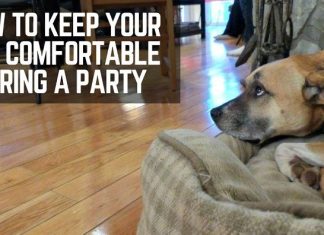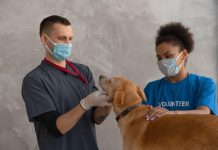Welcoming a new puppy into your home is a heartwarming experience filled with joy, curiosity, and a fair share of adorable chaos. As you embark on this delightful journey of puppy parenthood, ensuring your furry friend’s health and well-being becomes a top priority. One crucial aspect of their development is maintaining strong bones and healthy joints, which lays the foundation for a long, active, and happy life. In this article, we will explore the best ways to support your puppy’s skeletal health, providing you with practical tips and expert advice. Whether you’re a first-time puppy owner or a seasoned dog lover, these strategies will help you nurture your little companion’s growth, ensuring they have the strength and vitality to chase after countless sticks and explore the world with boundless energy. Let’s dive in and discover how to give your puppy the strong start they deserve!
Choosing the Right Nutrition to Support Healthy Bone Growth
To ensure your puppy grows up with strong bones and joints, it’s essential to provide a diet rich in the right nutrients. Calcium and phosphorus are the building blocks of healthy bone development. These minerals work hand in hand to support structural integrity and density. Look for puppy food that has a balanced ratio, as too much or too little of these nutrients can lead to bone issues.
Protein is another vital component, playing a crucial role in muscle development and joint health. High-quality sources of protein, such as chicken, fish, or lamb, should be a staple in your puppy’s diet. Additionally, consider foods enriched with omega-3 fatty acids, which help reduce inflammation and support joint health.
- Include vitamin D in your puppy’s diet to aid in calcium absorption.
- Look for foods with added glucosamine and chondroitin for joint support.
- Ensure the food is age-appropriate, as puppies have different nutritional needs compared to adult dogs.

Incorporating Safe and Fun Exercises to Strengthen Joints
Ensuring your puppy’s joints remain healthy and strong involves integrating safe and enjoyable exercises into their routine. Puppies are naturally energetic and curious, making it important to channel their enthusiasm into activities that are both beneficial and protective of their developing joints.
- Short Walks: Begin with short, gentle walks that are appropriate for your puppy’s age and breed. Avoid hard surfaces like concrete; instead, opt for grassy areas that provide a softer landing for their growing joints.
- Playful Fetch: Engage in low-impact games such as fetch using soft toys. This not only helps in strengthening their limbs but also provides a fun bonding experience. Ensure that the fetch area is free of obstacles to prevent sudden stops or twists.
- Swimming: If possible, introduce your puppy to water activities. Swimming is an excellent low-impact exercise that enhances joint mobility and muscle strength without putting stress on their joints.
Remember, each puppy is unique, and their exercise needs may vary. Always monitor your puppy during activities and watch for any signs of fatigue or discomfort. Regular vet check-ups are crucial to ensure that your exercise routine is appropriate for your puppy’s developmental stage.
Creating a Comfortable Environment for Your Puppys Development
When nurturing your puppy, ensuring their environment is cozy and conducive to their growth is essential. Puppies, like babies, thrive in spaces that are safe and supportive of their development. Start by providing a soft and supportive bedding. This not only helps in protecting their delicate joints but also offers a comfortable space where they can rest and recuperate.
Consider incorporating the following elements into your puppy’s space:
- Temperature Control: Puppies are sensitive to extreme temperatures. Ensure their space is neither too hot nor too cold, and consider using a warm blanket during colder months.
- Non-Slip Flooring: Puppies are prone to slips and falls, which can affect their bone development. Use rugs or mats to provide traction and reduce the risk of injury.
- Safe Play Area: Create a designated play zone with ample room to move around freely. Use toys that encourage gentle exercise, which aids in building strong bones and joints.
Beyond the physical space, engage in gentle and regular exercise tailored to your puppy’s breed and age. This promotes healthy bone growth and joint flexibility. Always be attentive to their needs, and avoid over-exertion to prevent strain on their developing bodies. By thoughtfully crafting their environment, you lay a foundation for a lifetime of health and happiness.
















